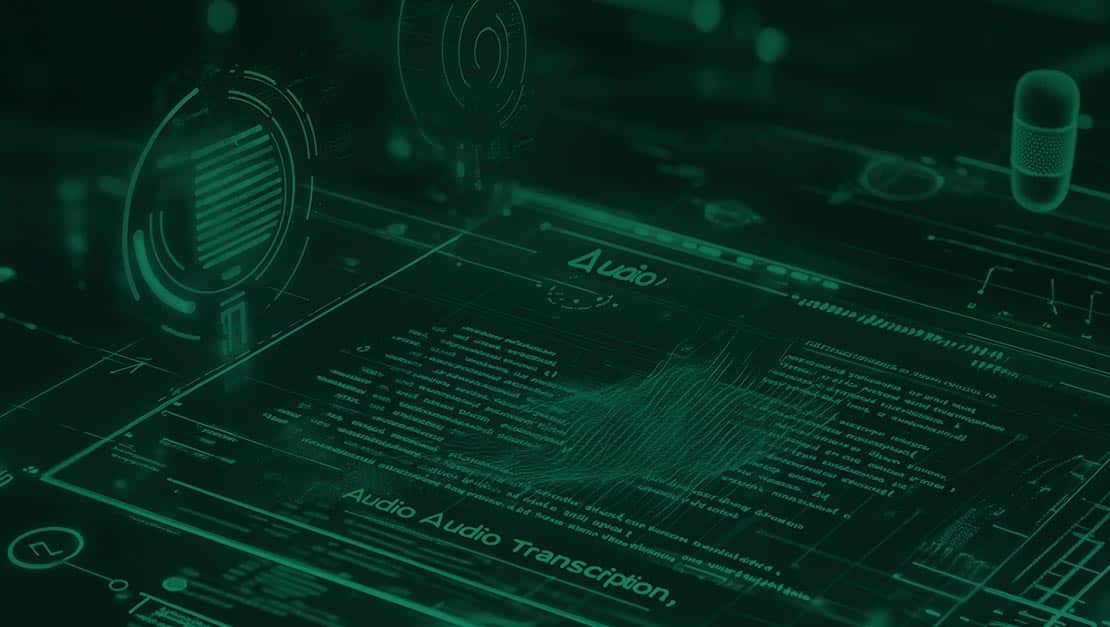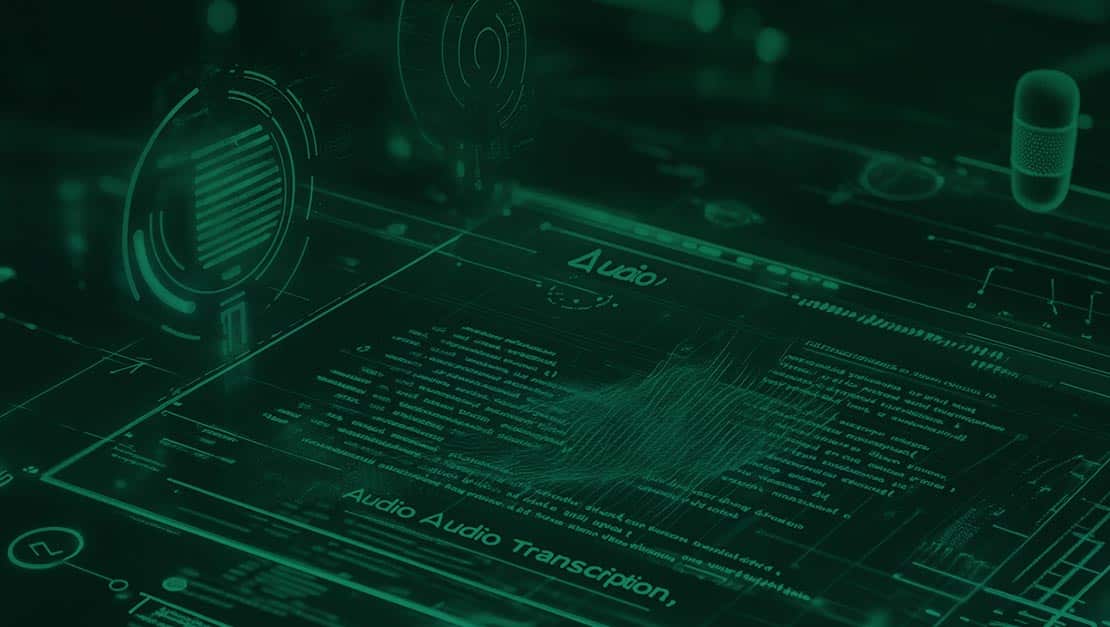The process of quality control is essential across various industries, ensuring the products and services businesses provide are up to standards. In specific industries like food manufacturing, warehousing, logistics, and fleet management, the need for strict quality control is a cornerstone of safety. Through the implementation of speech quality assurance systems, organizations can greatly improve quality monitoring without disrupting their existing workflows.
With the emergence of new technologies, the potential for transforming quality assurance processes is even more promising, with artificial intelligence (AI) and machine learning (ML) programs leading the charge. Speech AI in particular, a technology that can analyze and interpret human speech, can automate and enhance quality assurance processes to make them even more accurate, safe, and efficient.
This blog post will examine how speech AI technology is creating more reliable voice quality assurance processes in specific industries to offer new levels of efficiency and insight into workflows and mission-critical data.
Speech Quality Assurance in Food Manufacturing

When manufacturing food, companies must deliver a high level of food quality assurance. This means ensuring that items are free of contaminants, expired ingredients, allergens, or other products that can affect consumer’s health. With many safeguards in place to ensure a high standard of quality, food manufacturers can benefit from advanced AI and speech systems to further enhance safety protocols.
Current Challenges in Food Manufacturing Quality Assurance
There are a few challenges food manufacturers are facing when it comes to optimizing their quality assurance processes:
- Manual inspections: Food manufacturers rely heavily on human inspections, which are often manual, rely on a lot of paperwork, and are prone to error
- Regulatory compliance: Ensuring compliance with food safety regulations can be time-consuming and complex as regulations change
- Supply chain traceability: Tacking products like raw ingredients through the supply chain is challenging, offering limited visibility
- Cost and efficiency: Traditional quality assurance processes can be time-consuming, costly, and inflexible
Speech AI in Food Manufacturing
Speech AI is used in food manufacturing to automate key processes and improve quality assurance. In the future, this technology can further advance quality control procedures by helping companies gather data through speech.
Today, speech AI is being used in food processing to help companies ensure compliance with safety protocols, monitor quality standards and supply chains in real-time, analyze customer sentiment from phone calls, and identify trends to forecast demand. This is done using advanced voice technologies like natural language understanding (NLU) and speech recognition, so that speech is transcribed into text that can be parsed by advanced algorithms from critical data.
Speech AI in Quality Assurance: How it’s Used in Food Manufacturing
There are many ways food manufacturers can use speech AI in their daily processes:
- Inspections: Cut down on inspection time for machinery by using speech to report on findings instead of using paper or digital reports
- Customer feedback analysis: Integrate feedback from customer service teams and call centers into your workflows to improve product quality and customer satisfaction
- Compliance monitoring: Monitor employee interactions and gather data through speech to ensure compliance with food safety regulations
- Supply chain visibility: When interacting with other technologies like RFID tags or Internet of Things (IoT) sensors, speech AI can further enhance traceability by analyzing conversations related to supply chain products
Benefits of Implementing Speech AI in Food Manufacturing Quality Assurance
Here are a few key ways speech AI for quality control can benefit the food manufacturing industry:
- Increased efficiency by automating voice quality assurance processes to reduce manual effort
- Improved accuracy through analyzing data more accurately than humans alone
- Enhanced compliance by adhering to food safety regulations and quality standards
- Cost savings by reducing costs associated with manual labor and reducing opportunities for error
- Better decision-making abilities powered by speech AI insights from data analysis
Speech Quality Assurance in Warehousing
Warehousing is comprised of many different workflows. From picking to storing and handling products and orders, there are often several quality assurance processes in place to ensure procedures are followed and safety standards for employees are upheld. Warehousing processes can be enhanced using AI by improving processes related to inspections, inventory audits, and adherence to safety protocols. Additionally, speech AI technology can help reduce errors and safety issues.
Speech AI for Inventory Management and Quality Control
Speech AI is changing the way inventory is managed in warehouses by introducing more possibilities for automation. By automating processes like verbally logging inventory counts, warehouse teams are able to streamline operations and rely less on manual data entry which is more prone to error. Speech AI can also be used to analyze conversations between warehouse employees to identify potential issues such as predictive maintenance on warehouse machinery before they become larger problems.
How Can Speech AI in Warehousing Make Operations More Efficient?
Warehouse teams can apply speech AI to multiple use cases, making operations more efficient across the board. Here’s how it can be used.
- Inventory management: Inventory counts and real-time updates can be automated through speech technology to help improve accuracy and reduce stockouts
- Quality control inspections: Inspections of machinery and procedures can be done in seconds in speech instead of spending more time manually recording findings, helping teams better comply with quality standards and regulations
- Employee training: By picking up on speech on the warehouse floor, management can gain insights on areas for improvement and offer supplemental training to improve performance
- Process optimization: Conversations can be analyzed with speech AI to identify inefficiencies in warehouse operations
Cost-Benefit Analysis of Implementing Speech AI for Warehousing Quality Assurance Procedures
When it comes to implementing new voice quality assurance mechanisms, it’s important to conduct a cost-benefit analysis to see how, and when you can expect a ROI on your investment. With speech AI-powered quality assurance technology, here are the different factors to consider for this analysis:
- Reduced labor costs since manual tasks are automated
- Improved accuracy of inventory levels, leading to less wasted time, fewer costly order errors and stockouts, and better operation-wide accuracy
- Quicker operations and better efficiency with streamlined processes
- Stronger decision-making based on real-time data to save costs related to inefficiencies
- Better customer satisfaction due to more accurate orders that are sent out faster
Speech Quality Assurance in Logistics
Logistics management deals with the timely and safe delivery of goods, which involves quite a bit of monitoring products and orders, moving and storing items, and maintaining high standards so that delays and accidents are avoided. As a critical component of the supply chain, logistics teams need to meet stringent customer expectations and regulatory requirements, making speech AI systems fitting for this industry, too.
Logistics Quality Assurance Challenges
There are a few specific challenges unique to the logistics industry that companies need to overcome to streamline operations.
- Supply chain visibility: Ensuring visibility across the entirety of a supply chain can be challenging without the right systems
- Inventory management: It can be difficult to sync and manage inventory so that levels are always accurate and stockouts and overstock instances are avoided
- Last-mile delivery: To keep up with customer expectations, it’s essential to ensure on-time and accurate delivery in the final logistics stages
- Regulatory compliance: The handling and transportation of goods comes with its own set of regulatory requirements that must constantly be upheld
Speech AI for Real-time Monitoring and Quality Checks
Like many other industries where it has been introduced, speech AI is transforming how logistics teams operate by facilitating real-time monitoring and quality control. Speech recognition technology can be used to monitor what’s being said between logistics personnel and delivery drivers to ensure operations are carried out as needed. The technology can also help teams detect anomalies in real time so that immediate corrective action can be taken to prevent mistakes, accidents, or delays.
How Can Speech AI Be Used in Logistics Processes?
There are a few key applications for speech AI in logistics procedures, such as:
- Real-time route optimization that analyzes driver speech and reports to optimize delivery routes based on road conditions, traffic, and other factors
- Driver performance can be monitored to ensure compliance with safety protocols and assess whether a driver is tired
- Warehouse management can also benefit from speech AI as it enables hands-free inventory management and order picking
- Quality control inspections using voice can be completed in a matter of seconds during the loading and unloading process
Traditional vs. AI-Driven Approaches to Quality Control in Logistics
Traditionally, quality assurance in logistics relied on manual inspections and paperwork, which can be both time-consuming and open teams up to more possibilities for error. Additionally, with manual systems, there’s often no way to glean meaningful insights from collected data, leaving a lot of critical information on the table.
Speech AI-driven solutions, on the other hand, can automate a lot of these otherwise manual processes. For example, inventory checks, which can take hours, can be streamlined with a speech AI system that provides real-time inventory updates and alerts to enhance decision-making and speed the process along. With the data collected through speech, these systems can also provide instant insights into certain processes so they can be improved.
Speech Quality Assurance in Fleet Management

Fleet management involves handling multiple vehicles and drivers in different locations, ensuring the safety and efficiency of each. This includes a lot of monitoring and maintenance of both the vehicles and the driver’s performance to minimize risk and optimize fleet performance. By integrating speech AI solutions into your existing operations, you can conveniently improve certain fleet workflows without disrupting existing processes.
The Importance of Speech Quality Assurance in Fleet Management
Quality control systems in fleet management are important for several reasons, such as:
- Safety: It’s essential to ensure your fleet of vehicles is well-maintained to reduce the risk of breakdowns and accidents
- Efficiency: Proper maintenance and ongoing monitoring can lead to cost savings and higher productivity
- Compliance: Meeting regulatory requirements for vehicle safety is critical
- Customer satisfaction: By ensuring timely deliveries and preventing breakdowns, you can ensure a higher level of customer trust and satisfaction
Implementing Speech AI for Fleet Management
Speech AI can help fleet managers monitor driver performance and vehicle status in real time. For example, speech recognition technology can be used to analyze driver conversations or receive vocal reports from drivers on vehicles or road conditions. This speech data can be used to improve safety, optimize delivery routes, or even detect fatigue or distraction. Driver reports can be used to monitor vehicle diagnostics and provide alerts to handle maintenance issues before they lead to a breakdown.
Examples of Speech AI in Fleet Quality Assurance
When it comes to preserving the quality of your fleet and drivers, speech AI can make a world of difference when it comes to keeping them both secure. Here’s how:
- Driver behavior analysis: Analyzing driver conversation and language can help dispatch teams detect signs of fatigue or distractions so that accidents can be prevented
- Maintenance alerts: Real-time alerts of vehicle maintenance issues delivered through speech can help teams analyze diagnostics in real time
- Route optimization: Using speech AI to gather information on road conditions can help fleet managers instantly optimize routes based on weather or traffic
Future Possibilities of Speech AI in Fleet Management Quality Assurance
The future of speech AI in fleet management promises many exciting developments. As technology like ML and big data analysis continues to advance, there are likely to be even more sophisticated systems to monitor driver behavior and vehicle performance through speech. Additionally, as these technologies’ abilities grow, they’ll be better able to integrate with other systems, like IoT sensors, to further enhance the capabilities of speech in fleet management voice quality assurance.
aiOla: Leading Speech Quality Assurance Revolution
As the demand for speech quality assurance technologies rises, more and more tools are becoming available to companies in a variety of industries. aiOla, a speech AI technology, is empowering businesses across several industries to enhance their critical workflows through speech.
aiOla enables businesses to trigger actions just by speaking, while also simultaneously helping companies collect and analyze otherwise lost vocal data. As it understands over 100 languages including different accents, dialects, and industry jargon, aiOla is able to function across several global sites, unifying workflows and data collection across all locations. Not only that, but aiOla has a high level of accuracy, meaning it can understand speech even in the loudest acoustic environments like warehouses or manufacturing floors.
As a result of using aiOla for both workflow and quality assurance purposes, companies are able to work more efficiently:
- Companies using aiOla have seen a 45% decrease in inspection time
- They’ve also experienced a 30% rise in production uptime
- Manual operations after introducing aiOla were reduced by 90%
aiOla is helping companies around the world save time, collect critical data, trigger cost-saving automations, and more, all using only the power of voice. Since aiOla is speech-based, companies can onboard this technology with little to no learning curve, allowing employees to apply it to daily tasks without delay.
Adopting AI-Based Speech Quality Assurance for Your Business
If your business is looking to adopt a new quality assurance platform based on speech, consider opting for a solution like aiOla that offers high standards of quality control along with countless other possibilities. Whether your company needs to ensure a high level of food safety or you have a fleet of drivers and vehicles to manage, aiOla will help you do it all while maintaining a high standard of quality, all through the power of speech.
To learn more about how aiOla can help improve your quality assurance processes, schedule a demo with one of our experts.








